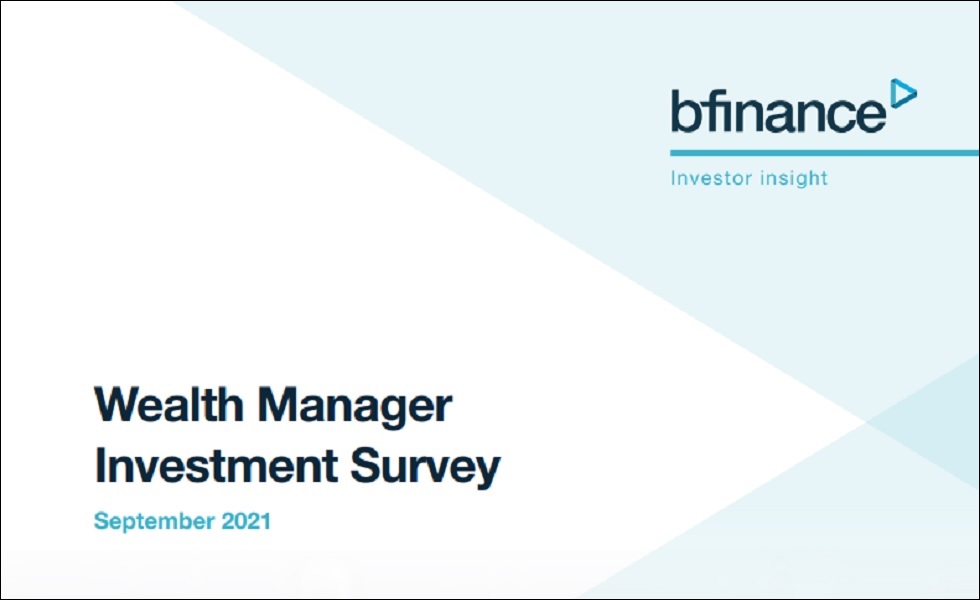bfinance: Wealth Manager Investment Survey September 2021

In an era of transformative change for the wealth management industry, how are investment capabilities evolving to keep pace with client demands and business imperatives?
Today, high net worth individuals (HNWI) control more assets than pension funds. That figure now stands at approximately USD 88 trillion, according to financial services firm PwC, versus USD 50 trillion in pension assets1. By 2025, the HNWI figure is predicted to reach USD 108 trillion and will be trending in favour of emerging markets, women and Millennials/Generation Z.
Meanwhile, ‘mass affluent’ savers—those with more than USD 100,000 available to invest—hold an additional USD 77 trillion in assets and that figure is expanding at a similarly rapid pace. Wealth managers are becoming increasingly keen to attract clients with these smaller sums, facilitated by digitally-enabled models that make lower investment sizes increasingly commercially attractive.
The ‘wealth’ client base is growing; its needs are changing. A plethora of research studies have demonstrated that wealth clients are increasingly expecting asset management services that are digitally sophisticated, ‘sustainable’ and ‘goalled’2 , while also providing access to a broad range of asset classes3 for investment diversification and better returns.
Clients are also becoming more likely to switch providers or use multiple firms if their needs aren’t met, with new competitors including fintech companies looking to take a slice of the wealth management pie. And, as illustrated here, wealth managers are under greater cost pressures than ever: falling fees for like-for-like services are forcing firms to find new efficiencies or produce new investment offerings that can merit higher charges.
Yet what do these shifts actually mean for the evolution of wealth managers’ investment capabilities, products and teams? In June and July 2021, bfinance surveyed 120 wealth managers around the globe, spanning different sizes and specialties, to shed light on key investment developments. Key findings fall chiefly into three themes:
- Expanding investment capabilities, with growing allocations to alternative investments and coverage of an increasingly diverse range of asset classes. Meanwhile, the much-discussed shift towards passive investing may have hit its limit.
- The shift towards ESG and impact investing, with clear differentiation emerging between those who envisage a separate ESG product suite and those who expect broad integration.
- Evolving structures and use of service providers: falling fees on like-for-like services, more use of external managers and a—very mixed—trend in favour of collectivisation.
We hope that this report primarily proves helpful to wealth managers and to the service providers who seek to support them, including the broader asset management industry.
Yet the health and effectiveness of this sector should also concern policymakers, macroeconomists and regulators. Wealth management, more than ever, is a topic that does not just affect the exceptionally well-off. Individuals face growing challenges in delivering their future financial security—challenges compounded by the decline of Defined Benefit pension provision relative to the (individually far riskier) Defined Contribution model, anaemic growth forecasts and a recent decade of stimulus-driven asset price inflation.
The results delivered by this industry will be increasingly crucial in determining the financial health (or otherwise) of upcoming generations.
Please click on the link below to read the full report:
